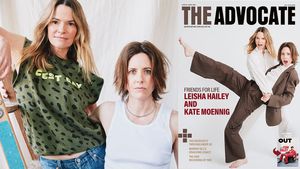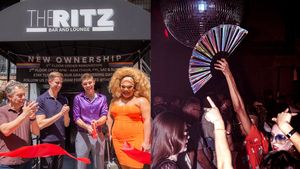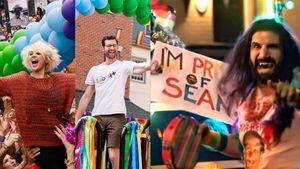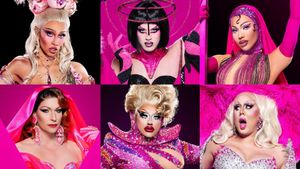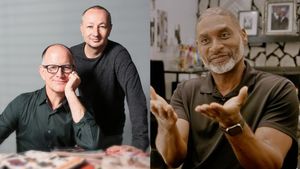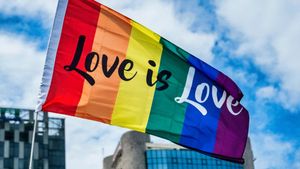One particular Washington, D.C., police beat has no precinct boundaries. It encompasses the vibrant gay club scene in the nation's capital, the sidewalks where transgender prostitutes ply their trade, and even the Internet, where criminals prey on men using gay dating sites. It's the beat of a cutting-edge and award-winning police squad--Washington's Gay and Lesbian Liaison Unit, led by a burly, openly gay sergeant who gave up a career as a pro hockey referee to pursue law enforcement. The unit investigates antigay hate crimes with zeal, but the bulk of its varied caseload arises from within the gay community, notably drug abuse and gay-on-gay violence. Crimes get reported and solved, said Sgt. Brett Parson, because of his unit's efforts to win trust and obtain tips from a group that long viewed the police as hostile. "The biggest challenge, from day one, has been to walk that very fine line between being advocates and enforcers," said Parson. "You want to build a strong relationship without losing respect because you're a pushover." Historically, many gays across the United States considered police departments a threat for raiding gay gathering places and employing unfairly selective arrest policies. The gay rights movement is widely depicted as starting with riots over a 1969 police raid on the Stonewall Inn, a New York City gay bar. Amnesty International, in a report last year, contended that abuse by urban police officers is widespread, but it acknowledged that many departments are striving to improve relations with the local gay and lesbian communities. Cities as far-flung from Washington as Fargo, N.D., and Missoula, Mont., now have gay liaison officers, but Parson says none matches his department's commitment, establishing a unit with a mission to investigate gay-related crimes and to do community outreach. Parson also teaches fellow officers in the rest of department about gay and lesbian issues, a course he calls Gay 101. Created in 2000 in a city with one of the nation's highest concentrations of gays, the unit now has six full-time officers, plus a cadre of part-time officers and volunteers from the community. It moved two years ago into a spacious storefront office near trendy Dupont Circle; posters condemning hate crimes decorate its walls. The unit was formed after D.C. police chief Charles Ramsey concluded that the low number of antigay hate crimes reported in Washington was not cause for celebration but rather a troubling sign that the city's gays deeply mistrusted the police. In one notorious case, a police lieutenant admitted in 1997 that he had run an extortion racket targeting patrons of gay nightclubs. Ironically, Parson is pleased that the number of reported hate crimes has risen from two in 1998 to several dozen a year. "That doesn't mean we're more homophobic--it means you have a community that finally feels comfortable turning to the police," he said. The unit gets involved in 10 to 15 murder cases a year, sometimes playing a key role in solving them. In one such case, Parson said, an America Online executive was reported missing by his family, who did not know he was gay. The executive's acquaintances in the gay community suspected foul play and provided tips that led to the arrest and conviction of a contractor who was doing renovation work for the victim. In a recent sting operation, using an undercover officer, Parson's unit helped arrest a suspect who was arranging sexual trysts on a gay Internet dating site, then committing robbery on the assumption the other man wouldn't dare report the crime. Most of the unit's tips and crime reports come from white gay men. Parson, who is white, has been working to develop better contacts with black gays--Washington is 60% black--and with the transgender community. "Our job is to go even when we're not comfortable," he said. The unit has assisted in the department's campaign to move transgender prostitutes away from one of their favored "strolls" near the Washington Convention Center. "We go to the girls and say, 'OK, it's time to move along,' " Parson said. "We want to be sure they're treated with respect." Parson, 38, joined the D.C. police force in 1994 and took charge of the liaison unit in 2001. He has been profiled in a documentary film The Sheriff of Gay Washington, and his energy helped his unit win a $100,000 Innovations in American Government Award in July. The money is intended to help the unit expand its already extensive efforts to assist other cities interested in similar initiatives. Parson has consulted with the Atlanta police department, which created a gay liaison post in 2002, and with Virginia's Arlington County, which now has a five-member Gay and Lesbian Liaison Team. He also provided advice to Missoula's sergeant Scott Oak, the first gay liaison officer in Montana. Someone scratched the word "Gay" on Oak's pickup truck earlier this year; another time, eggs were hurled at his house from a passing car. Fargo created its liaison post last year after an openly gay sergeant, Greg Lemke, heard about Missoula. "I thought if they could do it, we could do it," said Lemke, 45, recalling his surprise at how quickly his chief gave approval. Except for short-lived criticism on a local radio talk show, the public response was positive, said Lemke, whose duties include teaching a class on sexual orientation to recruits at the police academy. "There used to be officers who wouldn't talk to me, who said they wouldn't back me up on calls, but those people are gone," said Lemke, a 20-year veteran of the force. "We have a younger department now, well-educated, more open-minded." One heartening surprise, Lemke said, is that several officers have turned to him for advice regarding gays and lesbians in their own families. "That's been a big plus...I never envisioned they feel comfortable with me," Lemke said. San Francisco, home to one of the nation's largest gay communities, created a gay liaison police post back in the 1960s but no longer sees a need for it. The department has scores of openly gay and lesbian officers, and the city's seven-member police commission includes a transgender woman. While hailing such developments, Amnesty International contends that police mistreatment of gay and transgender people remains commonplace, with abuses ranging from verbal harassment and unfair targeting to beatings and rape. Parson avoids specific criticism of other police departments and says there are numerous options for those that are negatively perceived by local gays. "Regardless of your jurisdiction, the concept of a gay-lesbian liaison unit can be adopted to your needs," he said. "But it's window dressing to appoint one liaison officer in a big city that needs outreach. One person can't do that." (David Crary, AP)
















